In This Issue: From The Skittles Room New York 1924 Centennial Recap, by NM Anthony Levin New York 1924 Centennial Games Analyzed, by GM Lenderman Chess Toons En Passant Problems, Problems, curated by Alexander George Editor's Note
Welcome back, fellow chess players, to this edition of the Marshall Chess Club's fortnightly bulletin, The Marshall Spectator.
After months of preparations and invitations, this last week the Marshall Chess Club hosted the New York 1924 Centennial. Beginning with an opening ceremony and remarks by GM Andy Soltis that covered the historical context of the 1924 event known as “New York 1924” and the circumstances that led up to it, through the final closing remarks by Marshall Chess Club President Emeritus Dr. Frank Brady, the tournament was an enormous success.
The editorial board of The Marshall Spectator would like to extend our gratitude to the Marshall Chess Foundation and the Marshall Chess Club Board, in particular Ed Daley and Sarathi Ray, who helped make this event possible. Congratulations to GM Andrew Tang, who won the event with an impressive 7 out of 9, as well as Akira Nakada and Liam Putnam who earned IM norms for their remarkable performances against an incredibly strong field. If you missed the action, commentary and analysis of the event provided by IM Luis Coelho can be seen here, and a video of GM Andy Soltis’s opening remarks and lecture will soon be posted here. Game analysis and an event recap can be read below by our resident chess journalist, NM Anthony Levin as well as regular contributor to The Marshall Spectator, GM Aleksandr Lenderman.
This past weekend, the Pan American Youth Festival took place in Orlando, Florida, and many regular Marshall members traveled to Orlando for the event. Congratulations to Marshall Chess Club member Eshaan Hebbar, who scored a remarkable 7 out of 9 to finish first place on tie-breaks in the U18 Open, earning the IM title in the process.
Marshall regular Aditeya Das (pictured below) finished in 3rd place in his section, earning the CM title in the process.
The Americans dominated in the Girls U10 section, where a number of Marshall members finished in the top 10 as well. Alicia Zhu finished with 7 points in 2nd place, Wan Qin Li scored 6.5 to finish in 4th, Elizabeth Zhou and Kara Chan scored 6 points each finishing in 5th and 6th respectively, and Aileen Lou scored 5 out of 9 to finish in 7th place. Elliot Goodrich also had an excellent tournament, scoring 6 out of 9 in his section to finish in 6th place. For a full view of the cross table and to see how everyone did, please visit the chess-results page here.
Another remarkable international result was made by Marshall Chess Club Board Member, Beatriz Marinello, who recently played in the World Senior Chess Championships for Team USA. The 2024 FIDE World Senior Team Championship took place in Krakow, Poland, where Team USA took home the gold in the 50+ section, with Team USA Women earning the silver medal for women's teams in the 50+ and the bronze in the 65+ section.
Rather than offer separate tournaments for women's teams, the six women's teams in the 50+ section (and the three in the 65+ section) competed in the same sections as their open counterparts, with separate medals. In the 50+ section, Team USA Women earned a silver medal with a 4½/9 score, a half-point behind Estonia Women.
Over the last two weeks we have had a plethora of events for our members to play in.
The Sunday Game 50 Open on July 14 had 22 players registered and was won by Matthew Clibanoff, Ashton Bellur, and Noe Solorio Valderrama who scored 3.5 out of 4 to win $102.67 each.
The Sunday Game 50 Under 1600 on July 14 had 30 players registered and was won by David Yesilevich, who scored 4 out of 4 to win $180. Jacob Bleiberg, Kirill Tsydypov, Sydney Strauss, and Rowan Goranson scored 3 out of 4 to win $52.50 each.
The Rated Beginner Open on July 14 had 30 players registered and finished with two players getting perfect scores and splitting the prize funds. Arley Jesus Barroso Gutierrez and Vladimir Lionter scored 3 out of 3 to win $187.50 each.
The Saturday Game 50 Under 1800 on July 13 had 31 players registered and was won by Aileen Lou, who scored a perfect 4 out of 4 to win $180. Audrey Zhou scored 3.5 out of 4, winning $120, while Owen Pang, Melanie Liang, Allyson Yu, Kirill Tsydypov and Viaan Suthar scored 3 out of 4 to win $18 each.
The Saturday Game 50 Open on July 13 had 29 players concluded with a 4-way tie. Nathan Peyton, Aston Roberts, Vincent Yu and Phineas Weingarten scored 3.5 out of 4 to win $94.25 each.
The Morning Masters on July 13 had 15 players registered and was won by Jacob Sperber, Miles Hinson, and Mubassar Uddin who scored 2.5 and won $63 each.
The Under 2000 Morning Action on July 13 had 29 players registered and concluded with a 3-way tie. Kenneth Fernandez, Viaan Suthar and Joseph Otero won $116.67 for their perfect 3 out of 3 score.
The Friday Blitz on July 12 had 78 players registered and was won by GM Aleksandr Lenderman who scored 8 out of 9 to win the $370 first place prize. GM Irina Krush and IM Alexander Katz won $92.50 each for their 7 out of 9 score, while IM Elliot Papadiamandis and Alan Hiroshi Morris-Suzuki won $93 for the same score and CM Pedro Espinosa won $93 for scoring 6.5 out of 9.
The Women and Girls’ Open on July 12 had 5 players registered and was won by Anjyu Fujita, who scored a perfect 3 out of 3 to win $30, while Christy Zeng scored 2 out of 3 to win $15.
The Brother John McManus Action on July 11 had 46 players registered and was won by Vladimir Bugayev and GM Vojtech Plat, who scored a perfect 4 out of 4 to win $137.50 each. David Kantey won a class prize of $83 for his 3 out of 4 score, while the following 7 players scored 3 points to win $23.71 each: Aritro Chakravarty, Caleb Klenoff, Wyatt Wong, Alan Hiroshi Morris-Suzuki, Andrey Pichugov, Hursh Mehta, and Andrew Colwell.
We look forward to seeing you at the club soon!
New York 1924 Centennial Recap, by NM Anthony Levin
The New York Centennial Super Swiss concluded on Sunday with one clear winner. In fact, across nine rounds with 73 participants, there wasn’t ever a sole leader until after the tournament’s final round. GM Andrew Tang defeated GM Harshit Raja, the only other player on six points, to finish with 7/9 and claim the $4,000 prize. There were 14 grandmasters, 13 international masters, and many other titled players participating in the marathon that extended from Wednesday to Sunday.
Two young players earned their IM titles as well. FM Akira Nakada defeated GM Djurabek Khamrakulov in the final round to earn his last norm and FM Liam Putnam beat GM Oliver Barbosa to cross 2400 and earn his fourth norm. We’ll go over the final combination in Tang and Nakada’s last games.
I talked briefly with Tang about the final game and tournament as a whole. He was happy with this last one, but not so much about his other games. He said, “I’m actually not sure if you want to look at my other games because a lot of them were quite bad, like this morning I was in a lot of trouble against Sam Schmakel. I was in a lot of trouble against James Chirilov yesterday if he played correctly. I kind of just tried to get him into time trouble and use my advantage and it worked out.”
But the last round was different, and he was the one down to under 10 minutes against 40 by the end. “This game, my opponent played quite quickly, but I felt like I had a pretty good stable advantage and his kingside was just so weak. I was looking for these sacrifices on like e6 and f5 for a while and he gave me an opportunity. I was just ready. I calculated for quite a while, I thought everything was working out.” Try calculating for yourself: what would you play?
All the tactics worked like clockwork. After 30.Nxf5! gxf5 31.Rxe6 Qf8 32.Qb3 Nf6, we saw yet another, utterly decisive, sacrifice. 32.Rxf6!,
and after 32…Qxf6 33.Qxd5+ Kh8 34.Nf7+ Kg8 35.Nd6+ (no draw for you!) Kf8 37.Qxc6!
was an incredible move to witness played over the board. He went on to win in three more moves, after 37…Red8 38.Qb7 Rc2 39.Re6! 1-0.
(See full game here.)
Nakada apologized to his opponent immediately when he came in late, but his play on the board was far from polite. He turned the screw after a sequence that started with the grandmaster’s 14…a4?!.
After 15.Nxa4 Nxa4 16.bxa4 and the natural Qa5?, 17.Rb1 took advantage of a beautiful x-ray down the b-file. He ended up winning a pawn and converting the opposite-color bishop endgame. (See full game here.)
Nakada joined several players on a large tie with 6.5 points: IM Nico Chasin (who upset GM Aleksandr Lenderman), GM Mark Paragua, and IM-elect Liam Putnam.
Congratulations to the tournament winner, title earners, and all the prize winners too!
NM Anthony Levin, Marshall Chess Club Board Member, Chess Journalist & Spectator Contributor
New York 1924 Centennial Games, Analyzed by GM Aleksandr Lenderman
You can play through all of the below games complete with Grandmaster Lenderman’s annotations here.
It was a great privilege for me to play in the Centennial Open, playing several interesting games with some very strong players. It was won by none other than Andrew Tang, the reigning US Open Champion, and one of the top bullet players in the world, often playing toe-to toe with the the very best like Hikaru, Magnus, Daniel Narodtisky, and so on. He definitely has clutch genes and knows a thing or two about winning important games on demand. Having said that, usually to be able to win a very strong event like this, you will need some critical moments in the tournament to go your way. One such crucial moment for Andrew Tang was in round 7 against a rising strong young player James Chirilov, who if he would've won the game, he would've broken 2400, and most likely, clinched at least an IM norm. Unfortunately for James, just a few steps away from winning a very clutch game, he faltered, and gave Andrew Tang new life.
Round 7: Tang, Andrew - Chirilov, James
1. d4 Nf6 2. Nf3 e6 3. Bf4 d5 4. e3 c5 5. c3 Nc6 6. Nbd2 cxd4 7. exd4 Nh5 8. Be3 Bd6 9. Ne5 Nf6 10. Nd3 b5 11. g3 O-O 12. Bg2 a5 13. O-O Ba6 14. Rc1 Rc8 15. b3 Ba3 16. Rc2 b4?!
16... Be7 17. Ne5 Nxe5 18. dxe5 Nd7 19. Qe2 Nxe5 20. a4 Qd7 21. Rfc1 Bd6 22. Ra1
17. c4 dxc4 18. Nxc4 Nxd4 19. Rd2 Bxc4 20. bxc4 Nf5 21. Bc5 Re8 22. Ne5 Qc7 23. Nc6 e5 24. Bd5 e4 25. Qb3?!
25... Ng4 26. Be3 Kh8?! (26... Nfxe3 27. fxe3) 27. Bf4 Qb6 28. Qd1 Nf6 29. Ne5 Nxd5 30. Nxf7+ Kg8 31. Rxd5 e3 32. Rxf5? Better was 32. Qd3 exf2+ 33. Rxf2 b3 34. Qxb3 Qxb3 35. axb3 g6 36. Rxa5 Bc5 37. Nd6 Bxf2+
32... e2 33. Qd5 exf1=Q+ 34. Kxf1 Qe6 35. Nd6 Rcd8 36. c5? Better was 36. Qxe6+ Rxe6 37. Nb7 Rd1+ 38. Kg2 Bc1 39. Bxc1 Rxc1 40. Rxa5 Rf6 41. Nc5 Rc2.
36... Qxd5 37. Rxd5 b3??
A huge missed chance. Giving up such an important potential passed pawn is rarely a good idea. Now Black will have no counter play and will be on the defensive.
(37... a4! This asks to be played. Not sure exactly what James didn't like. 38. c6 This is the most critical test but it simply loses also. (38. Rd1 b3 39. Rb1 bxa2 40. Ra1 Re6 41. Rxa2 Bxc5 42. Nb7 Rd1+ 43. Kg2) 38... b3 39. c7 b2! 40. Rd1 (40. cxd8=Q b1=Q+ (40... Rxd8 41. Rb5)) 40... Rxd6 41. Bxd6 Bxd6)
38. axb3 Re6 39. h4 h6 40. h5 Kf8 41. Be5 g6?! (41... Re7)
42. hxg6 Rxg6 43. Bf4 Re6 44. Kg2 Bb4?! (44... Rd7 45. Kh3)
45. Kh3 Kg8?! (45... Rf6 46. Kg4 Ba3 47. Be3 Ke7 48. f4 Ke6 49. Rd1 Rf5 50. Re1 h5+ 51. Kh3) 46. Be3??
Now, it's Andrew's turn to make a mistake and give James an unexpected drawing chance. (46. Be5! Followed by f4 is totally winning for white.
46... Rxe3! Simplifying into an objectively drawn rook endgame. (46... Rexd6 47. cxd6 Rxd6 48. Rxd6 Bxd6 49. Bxh6)
47. fxe3 Bxc5 48. Rxc5 Rxd6 49. Rxa5 Rd3 50. Rb5 Rxe3 51. Rb7 Rc3 52. Kh4 Rc5 53. b4 Rd5 54. g4 Kf8 55. b5 Kg8?!
A step in the wrong direction since the black king will need to eventually get to e8 anyway to help deal with the b-pawn. (55... Rc5 I think this is an easier draw. 56. b6 Rb5 57. Kg3 Rb4 58. Kf3 Ke8.)
56. b6 Rb5 57. Kg3 Kf8??
The final mistake which allows white to win. (57... Rb4! The king needed to be cut off again. 58. Kf3 (58. Kh4 Rb5) 58... Kf8 59. Ke2 Ke8 60. Ke3 Kd8 61. Kf3 Ke8 62. Ke2 Rb3 63. Rb8+ Kf7 { Is a sample line leading to a draw. })
58. Kf3?? (58. Kf4! Ke8 (58... Rb4+ 59. Ke5) 59. Rb8+ Kd7 60. b7 Kc6 61. Rh8 Rxb7 62. Rxh6+ Kd5 63. Kf5 Rb3 64. g5 Would be a winning line for white.)
58... Ke8?? Missing another chance. (58... Rb4 59. Ke2 Ke8 60. Ke3 Kd8 61. Rb8+ Kd7 62. Kf3 Rb3+ 63. Kf4 Rh3 64. Rf8)
59. Kf4 Kf8 60. Ke4 Now, White finds the winning plan. 60... Rg5 (60... Ke8 61. Rb8+ Kd7 62. b7 Kc6 63. Rh8 Kxb7 64. Rxh6 Kc8 65. Rf6 Rc5 66. Kf4)
61. Rc7 Rxg4+ 62. Kf5 Rb4 63. b7 Rb5+ 64. Kg6 Rb6+ 65. Kh5 Rb5+ 66. Kxh6 Rb6+ 67. Kh7
A clutch win, but this time, not without some help from his opponent, for whom it turned to be a heartbreaking loss costing him the norm and the 2400 rating. Still though, James has been on an incredible run, getting to FM, and I'm sure it's only a matter of time before he becomes an IM with such strong performances if he can improve on his consistency. 67. Kg5 Rb5+ 68. Kf6 Rb6+ 69. Ke5 Rb5+ 70. Ke4 Ke8 71. Rc8+ Kd7 72. b8=Q Rxb8 1-0
Round 8: Schmakel, Sam - Tang, Andrew
1. e4 e5 2. Nf3 Nc6 3. Bb5 a6 4. Ba4 Nf6 5. O-O Be7 6. Re1 b5 7. Bb3 d6 8. c3 O-O 9. h3 Bb7 10. d4 Re8 11. Nbd2 Bf8 12. a4 Na5 13. Bc2 exd4 14. cxd4 b415. b3 g6 16. Rb1 Bg7 17. Bb2 Rc8 18. h4 Re7 19. Bd3 Qe8 20. e5 Nd7 21. Qe2 Ra8 22. h5 Bd5?!(22... dxe5 23. dxe5)
23. hxg6 hxg6 24. Be4 Nb6 25. Bxd5 Nxd5 26. Rbc1 Qd7?! (26... c5 27. Qd3 Nf4 28. Qe3 Bh6 29. Kf1 Qf8 30. Ne4 Nh5 31. Qd3 c4 32. bxc4)
27. Qe4 c6 28. Qh4 Qf5 29. exd6 Rxe1+ 30. Rxe1 Leading up to this moment, IM Sam Schmakel was having a great game against Andrew Tang, thanks to his excellent opening preparation. However, here he starts playing inaccurately.
30... Bf6 31. Qe4?! Still good but starts to lose the thread a bit. (31. Qg3! Generally, with an attack it's better not to trade queens. 31... Kg7 32. Ne4 Re8 33. Ne5 Nb7 34. d7 Rd8 35. Ng4 Be7 36. Nc5 Is a sample winning line for white.)
31... Rd8 32. Qxf5?! Continuing on the wrong idea. (32. Qe2 was best.)
32... gxf5 33. d7 Rxd7
Already black is fine in this endgame, and eventually, black was even able to win.
34. Re8+ Kg7 35. Ne5?! Bxe5 36. Rxe5 Kg6 37. Kf1 f6 38. Re8 Nc3 39. Rb8?? (39. Re3 Was the only move to maintain the balance but this is already difficult. 39... Nd5 40. Rg3+ Kf7 41. Ke2 Rd8 42. Kd3 Nf4+ 43. Kc2 Nb7 44. Nc4 Re8)
39... Rh7!
Tang is extremely precise even in time scrambles. He has lots of online experience in very short time controls.
40. g3 Rh1+ 41. Kg2 Rd1 42. Nc4?! (42. Nf3 was better. For instance 42…Rb1 43. d5 Nxd5 44. Bd4 f4 45. Nh4+ Kf7 46. Nf5 fxg3 47. fxg3 Ke6).
42... Nxc4 43. bxc4 a5 44. d5 cxd5 45. c5 Nxa4 46. c6 Nxb2 47. c7 Rc1 48. Rg8+ Kf7 49. c8=Q Rxc8 50. Rxc8 b3 Black simplified into a winning endgame down an exchange but with unstoppable passers.
51. Rb8 a4 52. Rb4 Kg6 53. Kf3 Nd3 54. Rb5 b2 55. Ke3 a3 Another clutch win, and once again from a difficult position. 0-1
Round 9: Tang, Andrew - Raja, Harshit
After surviving two objectively lost positions, and even winning them, Tang was probably determined to try to fight to win the whole tournament. In my experience, when you're in good form plus get important breaks during the tournament, that's a deadly combo and bad news for your opponents. This time, it was time for Andrew Tang to take things in control from the start, and just play a magnificent attacking game against a very in-form player, Harshit Raja, who is coming off of 2 wins himself. I had the unfortunate experience once of losing a last round game to Raja where all I needed was a draw to win the tournament, so it is quite clear that Raja is a very capable clutch GM as well.
1. d4 Nf6 2. Nf3 e6 3. Bf4 d5 4. e3 Bd6 5. Nbd2 O-O (5... Bxf4 6. exf4) 6. c3 b6 (6... c5!? Maybe this move first makes sense just to see what white will do before deciding on the next plan. 7. h4 (7. Ne5 Qc7) 7… Nc6 Here already Black will probably play Nc6 to try to prepare the e5 break.)
7. h4!? A very interesting and ambitious way to play the London. Tang is an expert of the London system, and knows the ins and outs of it. 7... c5 8. h5 Bxf4 (Perhaps, 8... cxd4 is slightly preferable.) 9. exf4 Qd6 (9... h6) 10. h6! This is a useful inclusion for white. That pawn on h6 will be a thorn in Black's side throughout the whole game. } (10. Ne5? Is still premature due to 10... cxd4 11. cxd4 Qb4) 10... g6 (10... Qxf4 11. hxg7 Kxg7 12. Rh4)
11. g3 Ba6 12. Bxa6 Nxa6 13. Qe2 Nb8 14. Kf1!
The most accurate plan. White's rook belongs on the h-file. (14. O-O Ng4)
14... Nc6 15. Kg2 Nd7 16. Rhe1 Rfe8 17. Qe3 Qf8 18. Ne5! Ndb8 19. Ndf3 f6 (19... Qxh6 Loses spectacularly to 20. Nxf7 Kxf7 21. Rh1 Qg7 (21... Qf8 22. Rxh7+ Kg8 23. Rah1) 22. Rxh7)
20. Ng4! White wants to keep as many attackers as possible and meanwhile, Black's forces are uncoordinated.
20... Nd7 21. Re2 Kf7 22. Rae1 Rac8 23. Qd2 cxd4 24. cxd4 Qb4 25. Qd1 Na5 26. Ne3 Qd6 27. Nh4! Preparing an f5 break. 27... f5?! (27... Nf8 28. f5) (27... Nc6 28. f5 exf5 29. Nexf5 gxf5 30. Rxe8 Rxe8 31. Qh5+)
28. Nf3 Now the knight on h4 did its job, so we go back to f3 and attack the weakened squares on e5 and g5.
28... Nc6?? (28... Nf6 29. Ng5+ Kg8 30. Qa4 Qc6 31. Qa3 Qd7 32. f3 Nc6 33. Nc2 Nd8 34. Nb4)
29. Ng5+ Kg8 30. Nxf5!
The decisive breakthrough. 30... gxf5 31. Rxe6 Qf8 32. Qb3 Nf6?! (32... Rxe6 33. Rxe6 Ne7 34. Qb4 Ng6 35. Qb5 Rd8 36. Qc6 Nh8 37. Rg6+ hxg6 38. Qe6+)
33. Rxf6!! White sacrifices the rook!!! 33... Qxf6 34. Qxd5+ Kh8 35. Nf7+ Kg8 36. Nd6+ Kf8 37. Qxc6!!
Probably, White has calculated this ahead of time.
This is the only winning move. 37... Red8 38. Qb7 Rc2?! (38... Rb8 39. Qc7 Rxd6 40. Qxb8+ Qd8 41. Qxa7 Qd7 42. Qxd7 Rxd7 43. Re5 Rf7 44. Re6) 39. Re6!
A nice finish. Black cannot take the rook due to mate. Simply an immaculate attacking game by Andrew Tang, and an impressive game to cap off a wonderful tournament win! Congratulations once again to Andrew! } 1-0
GM Aleksandr Lenderman, Marshall Chess Club Spectator columnist
Chess Toons
En Passant
Bodhana Sivanandan, a fourth-grader, has become one of England’s best players just a few years after discovering chess during pandemic lockdown.
The US Chess Federation announced on Monday that Shama Yisrael, a 20-year-old from Florida, has crossed the 2200 USCF rating barrier and will become the first female, African-American national master in the country's history when the rating lists are updated in August.
Team lineups announced for record-breaking 45th Chess Olympiad to be held in Budapest, Hungary.
Watch the nation's best juniors, girls, and seniors compete in three exciting 10-player round-robin tournaments, vying for a combined prize fund of $135,600. Follow the action with live commentary and experience the excitement of the U.S. National Championships!
Problems, Problems, curated by Alexander George
J. Vancura, 1922
White to move and win.
Another lovely and instructive endgame from Vancura. The name of our composer may well be familiar to many players. More about him and his endgame contributions next week.
---
Last issue’s puzzle, J. Vancura, 1922
White to win.
Solution to Vancura, 1922: 1.Bd7! Ke3 2.h4 Ke4 3.h5 Ke5 4.h6 Kf6 5.Be8 and wins.
Alexander George
Editor's Note
As always, if you have any feedback, comments, or would like to submit an article please contact us directly at td@marshallchessclub.org.
Enjoy, and thanks for reading!
The Marshall Chess Club
23 West Tenth Street New York, NY 10011
212.477.3716
Thanks for reading The Marshall Spectator! Subscribe for free to receive new posts and support the club.







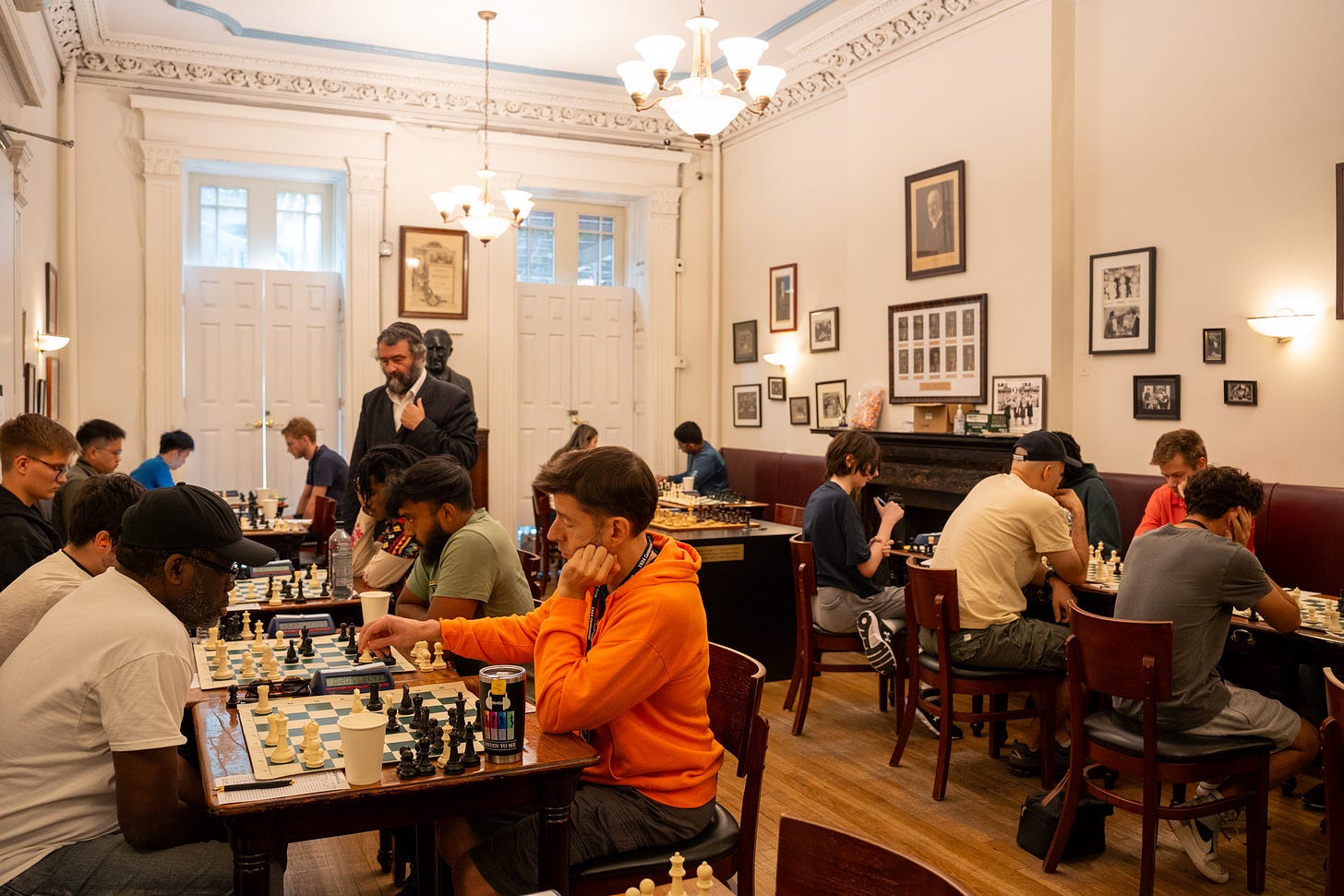
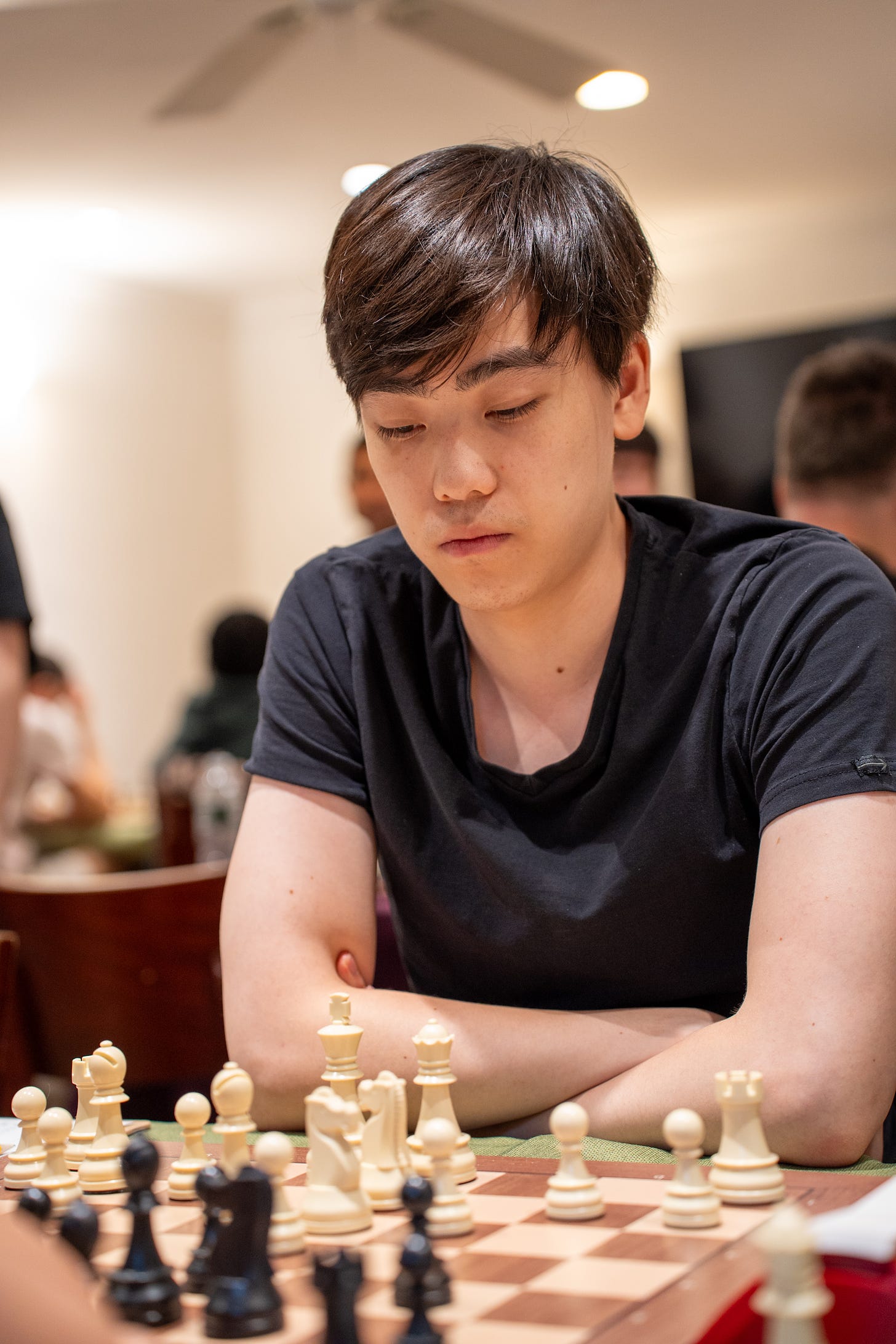
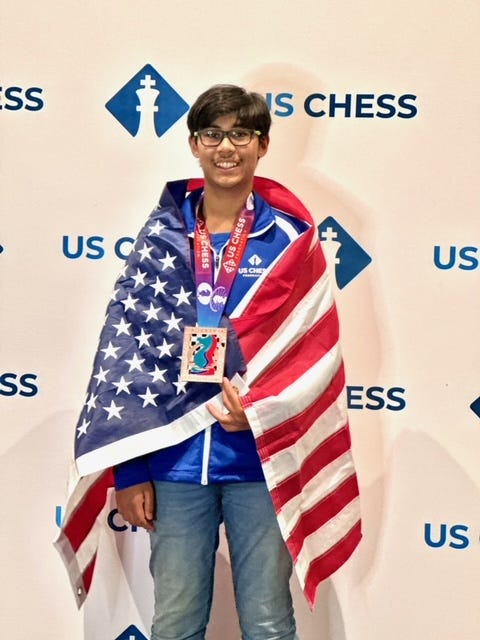

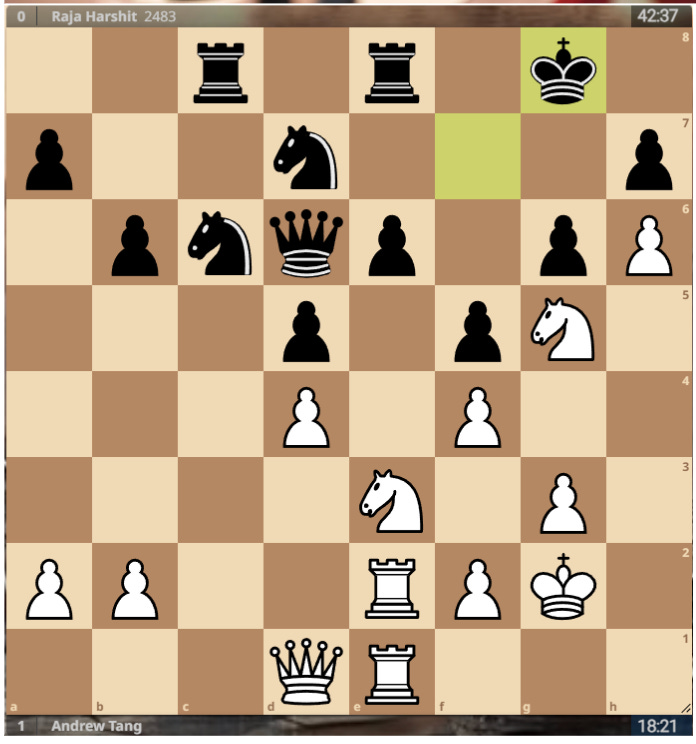
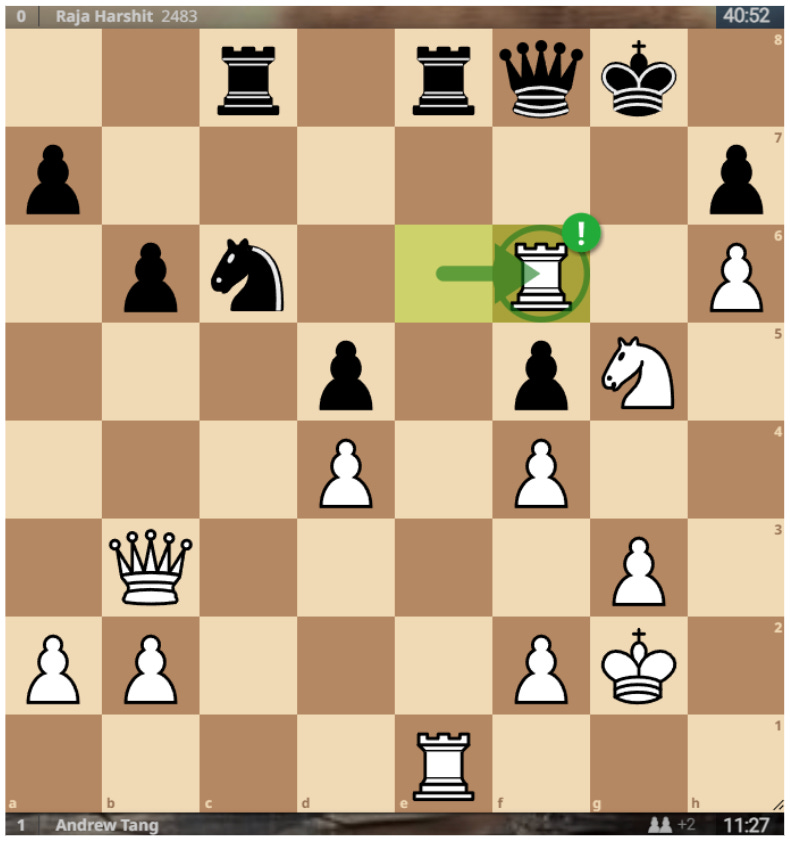
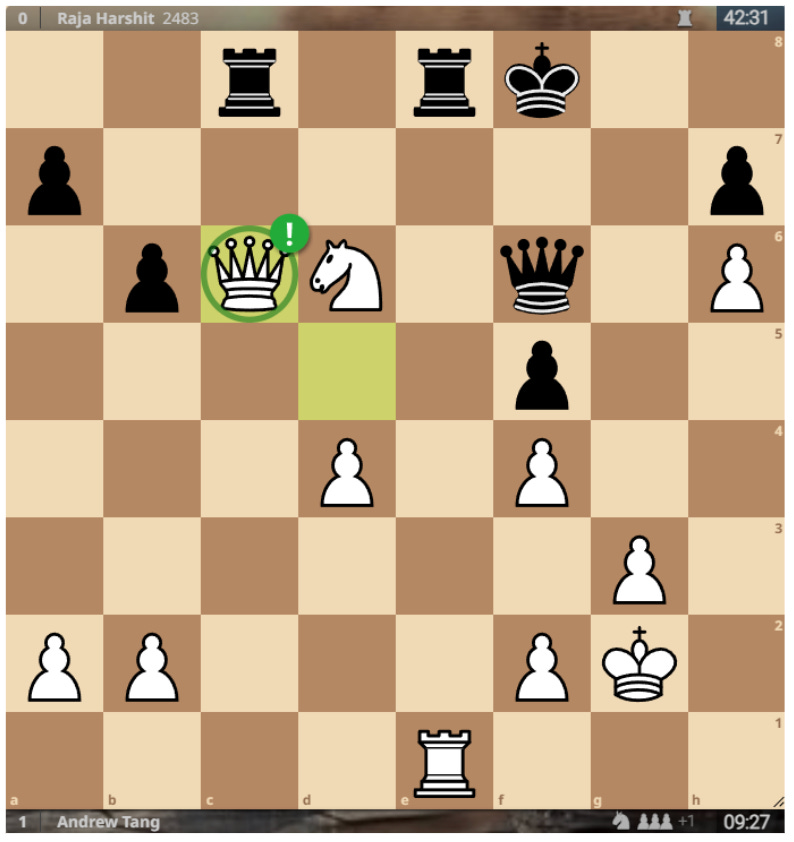
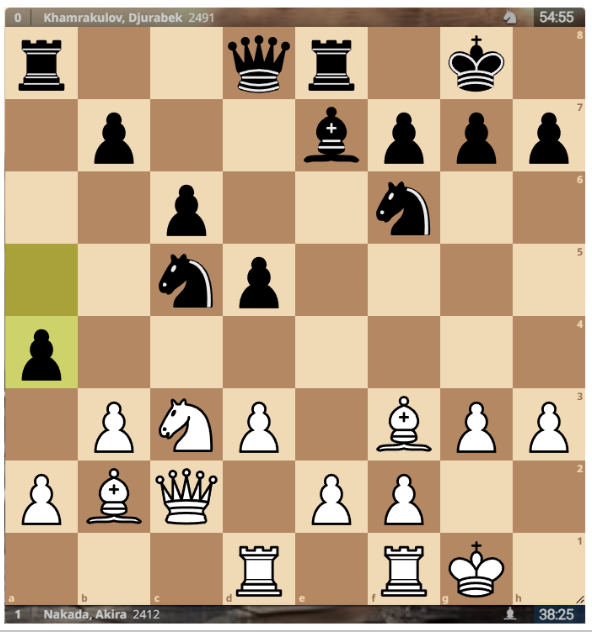
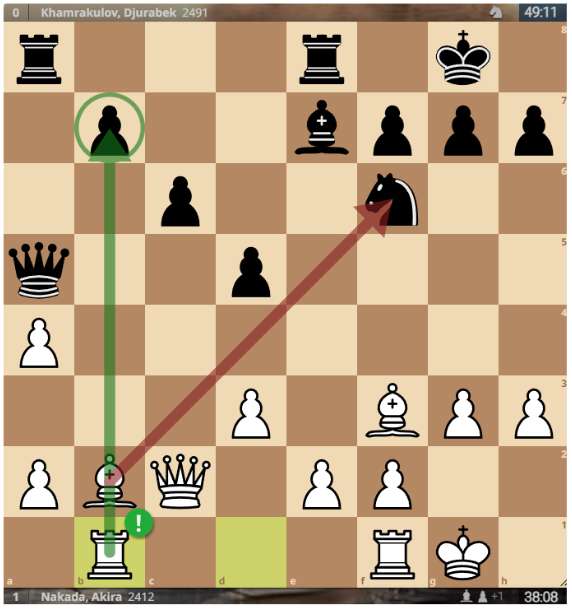
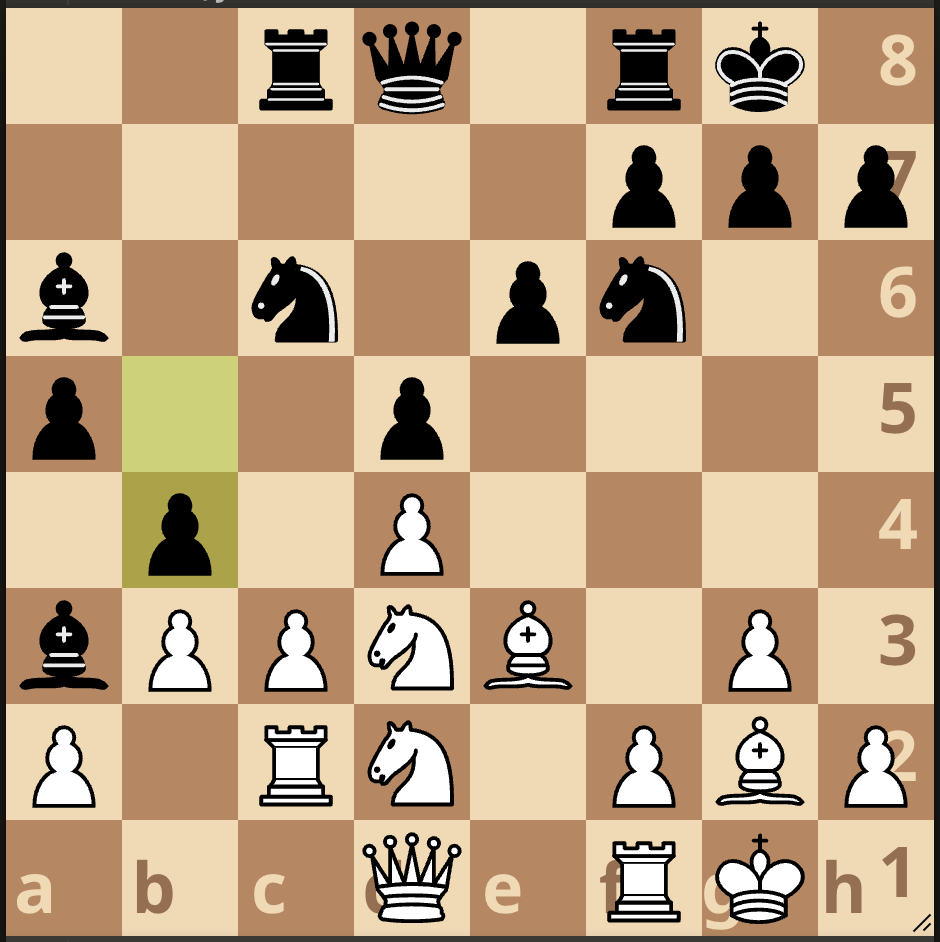
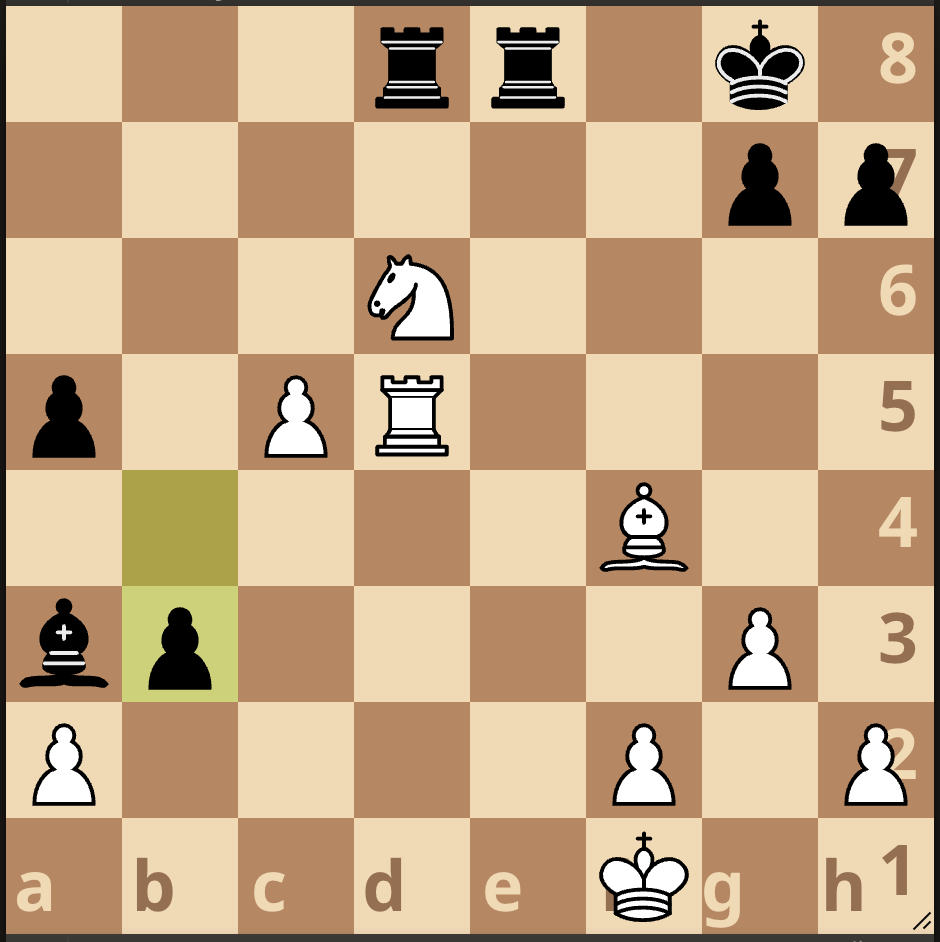
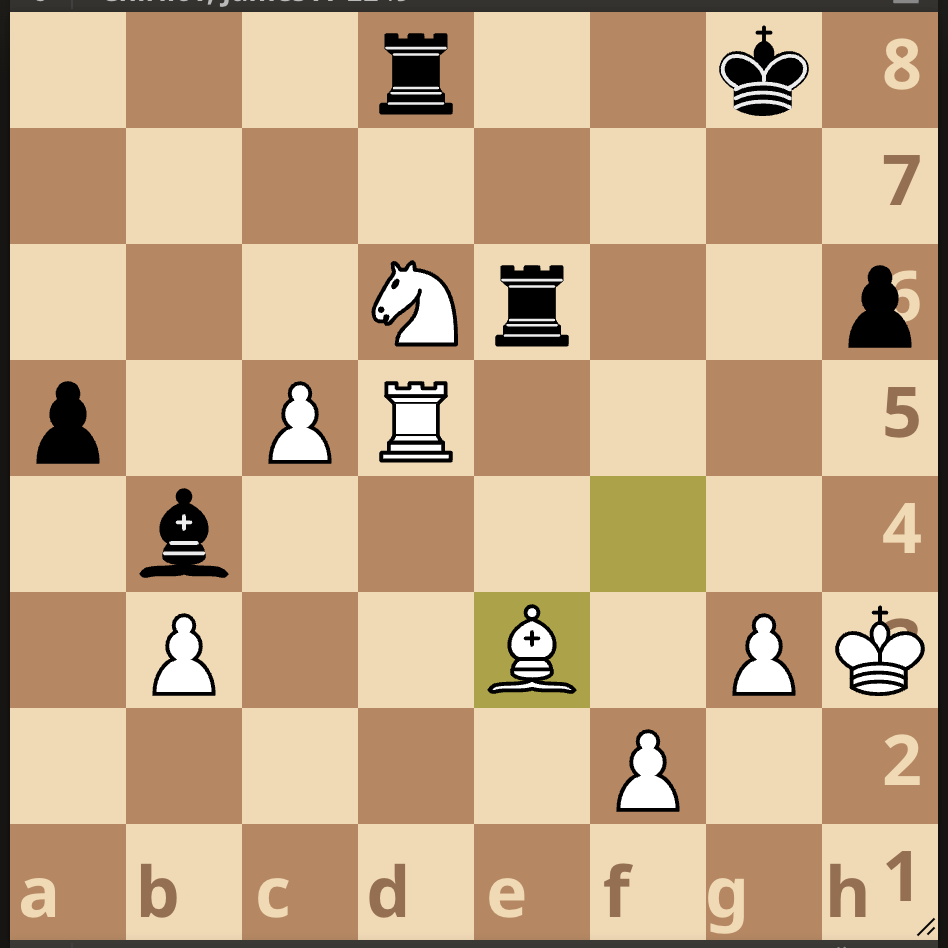
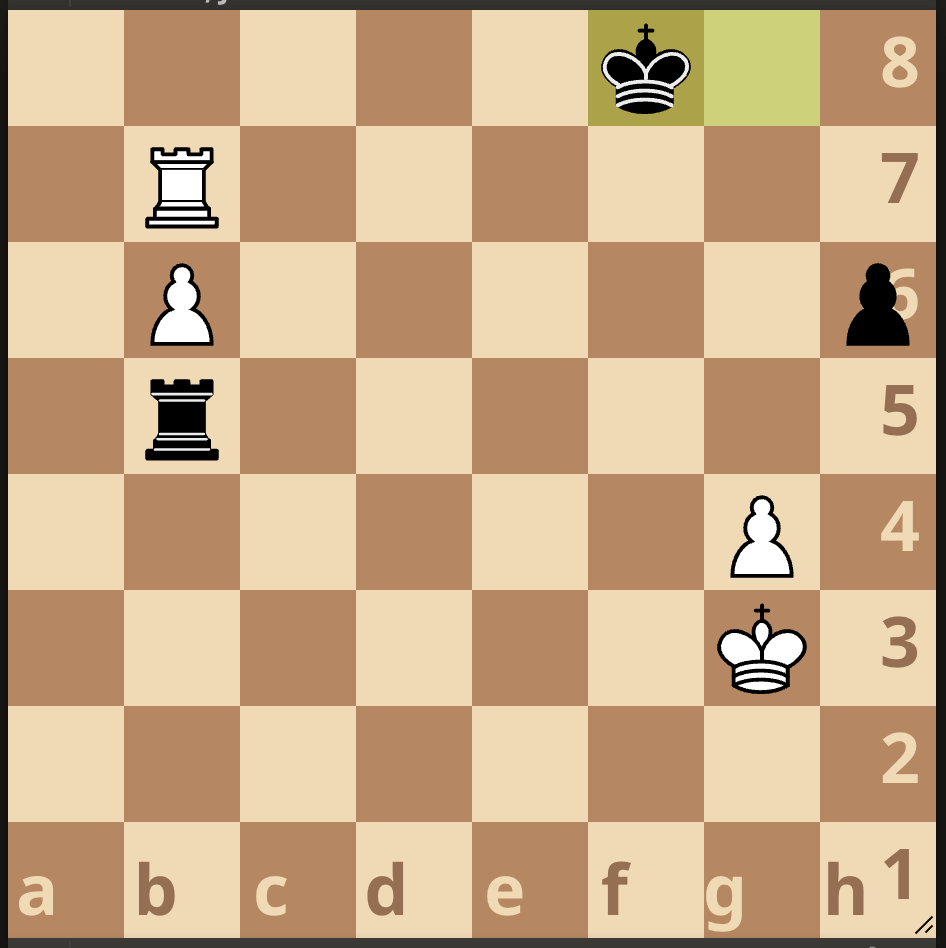
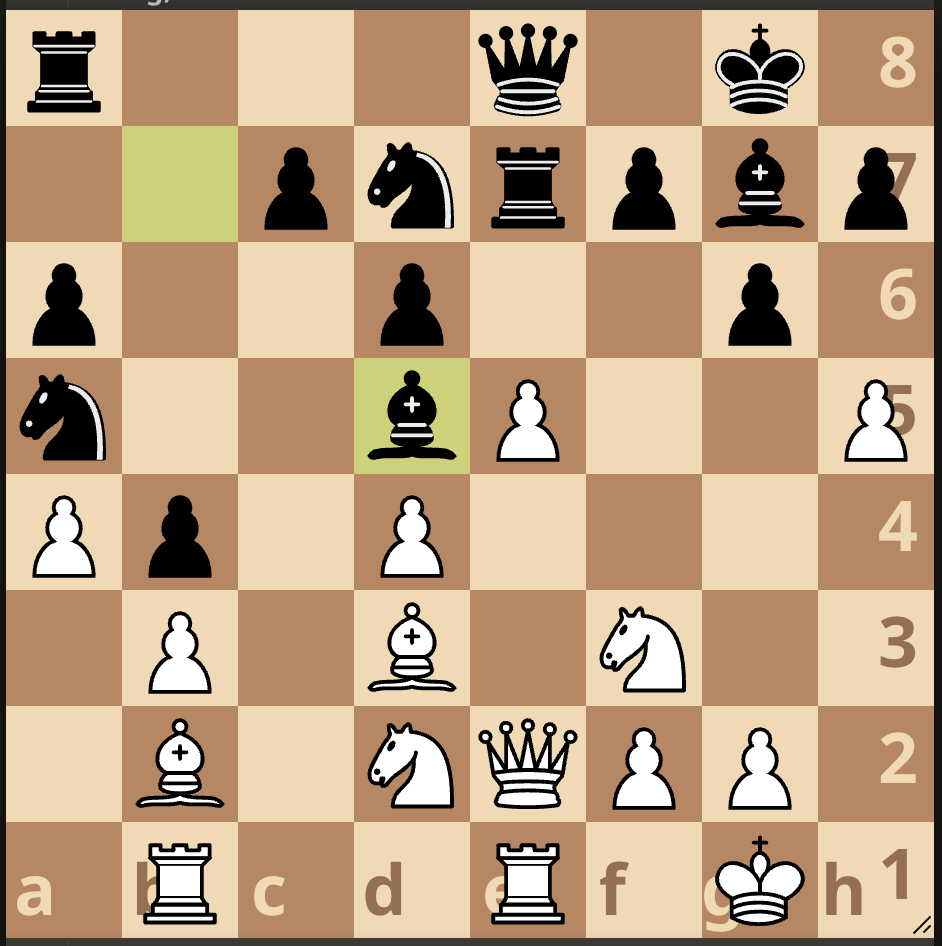
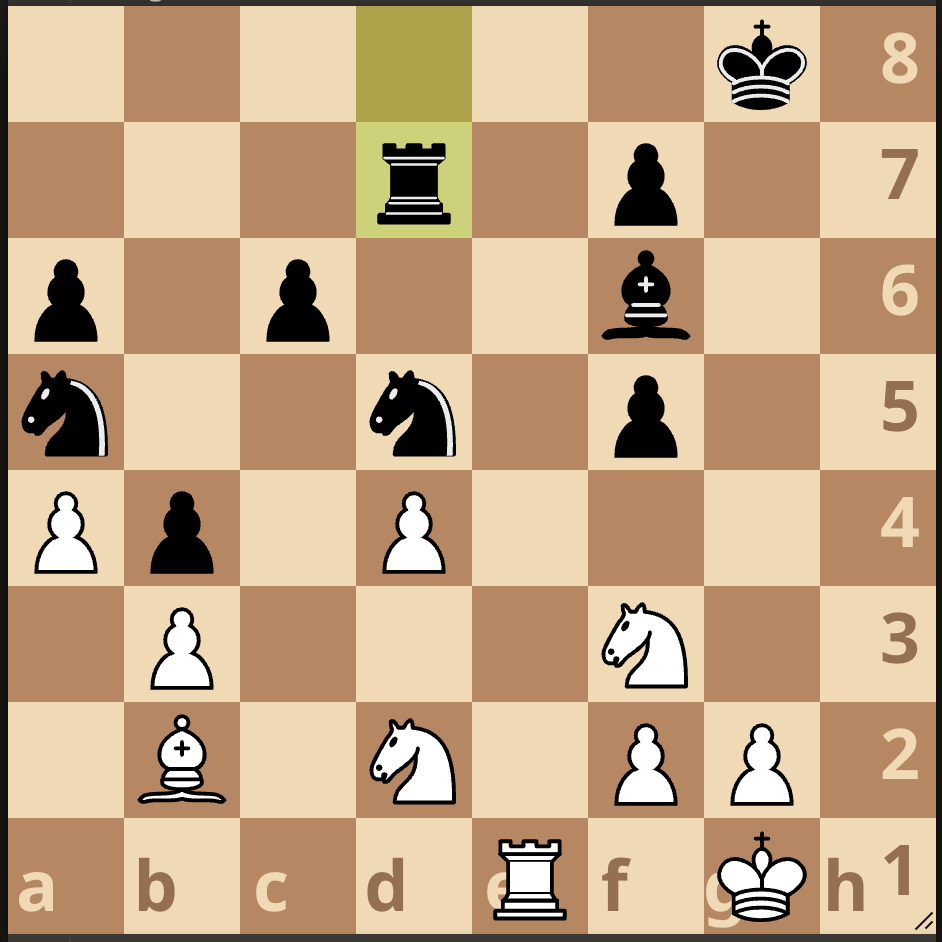
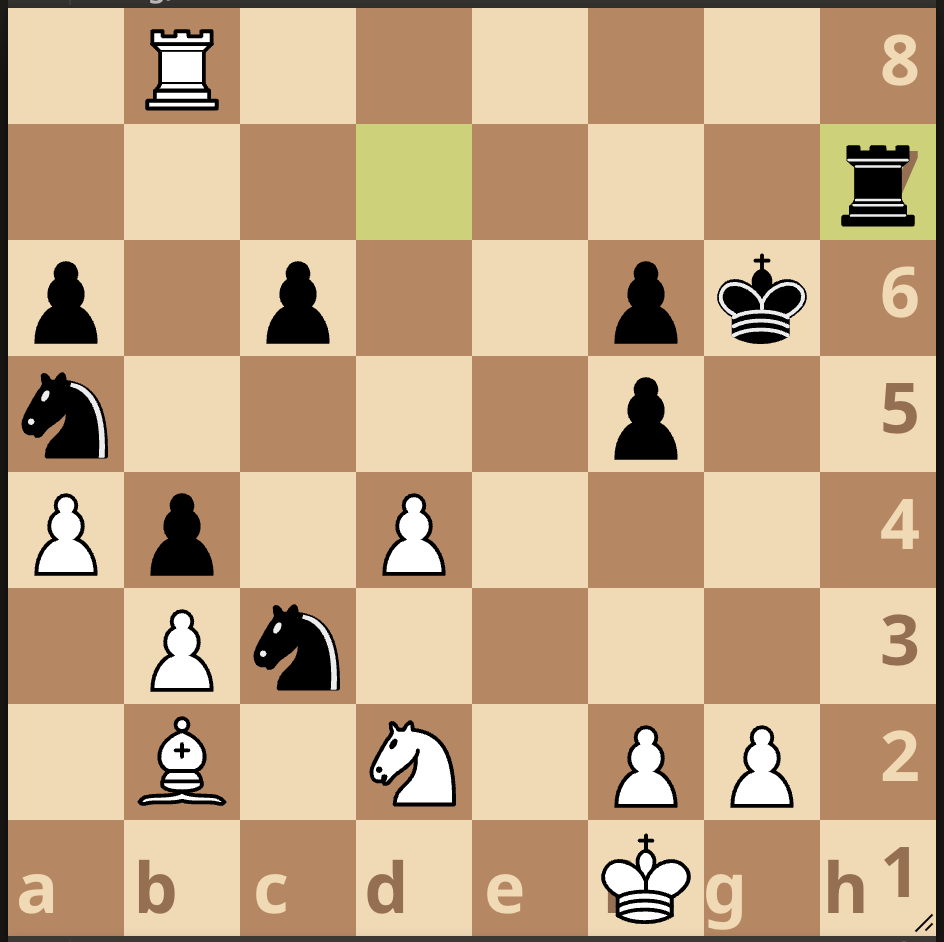
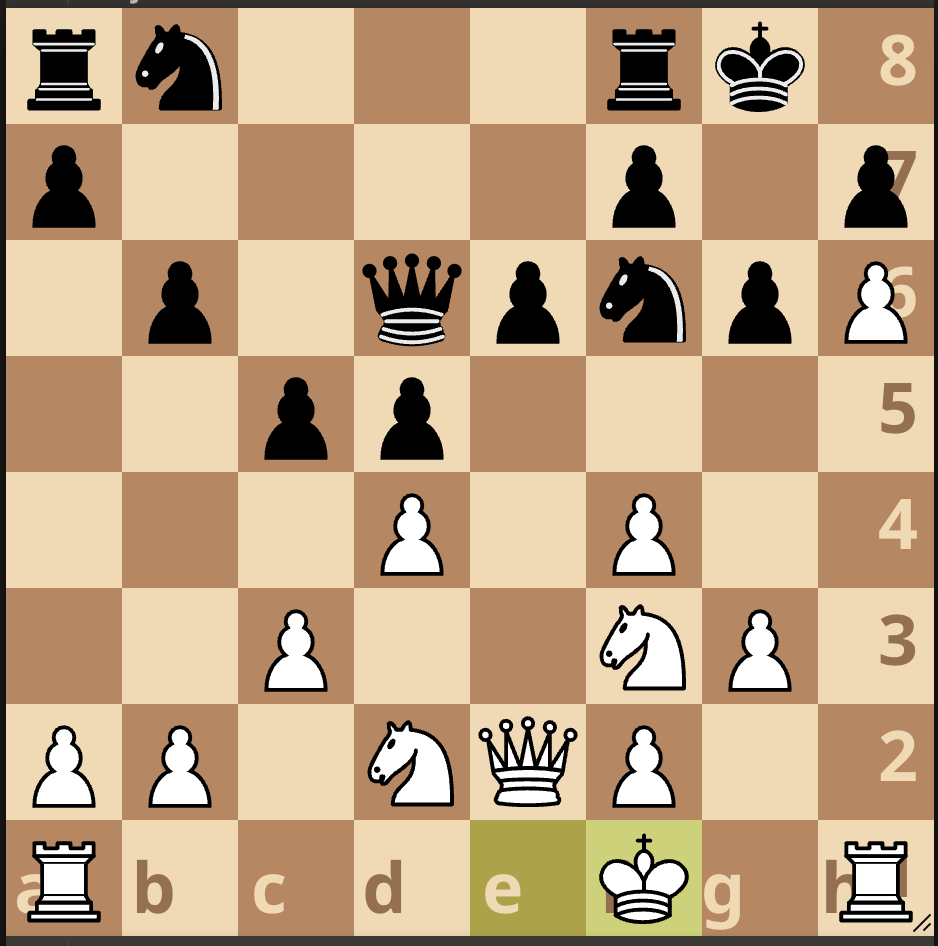
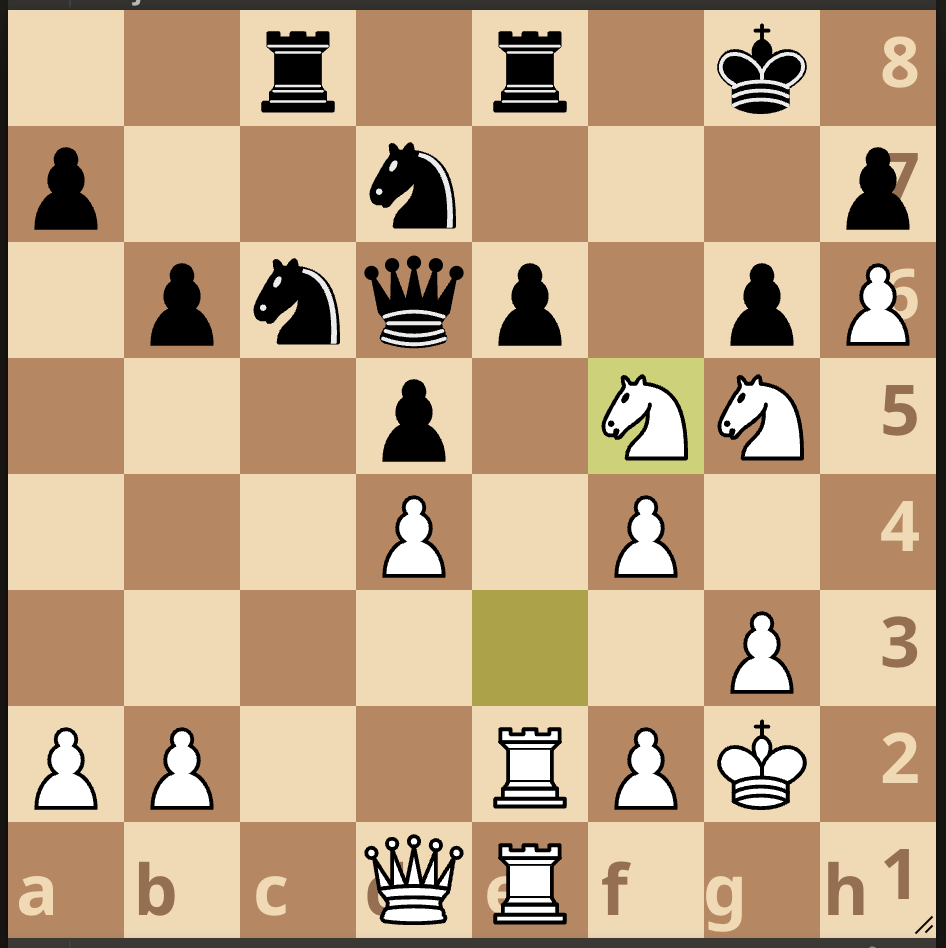
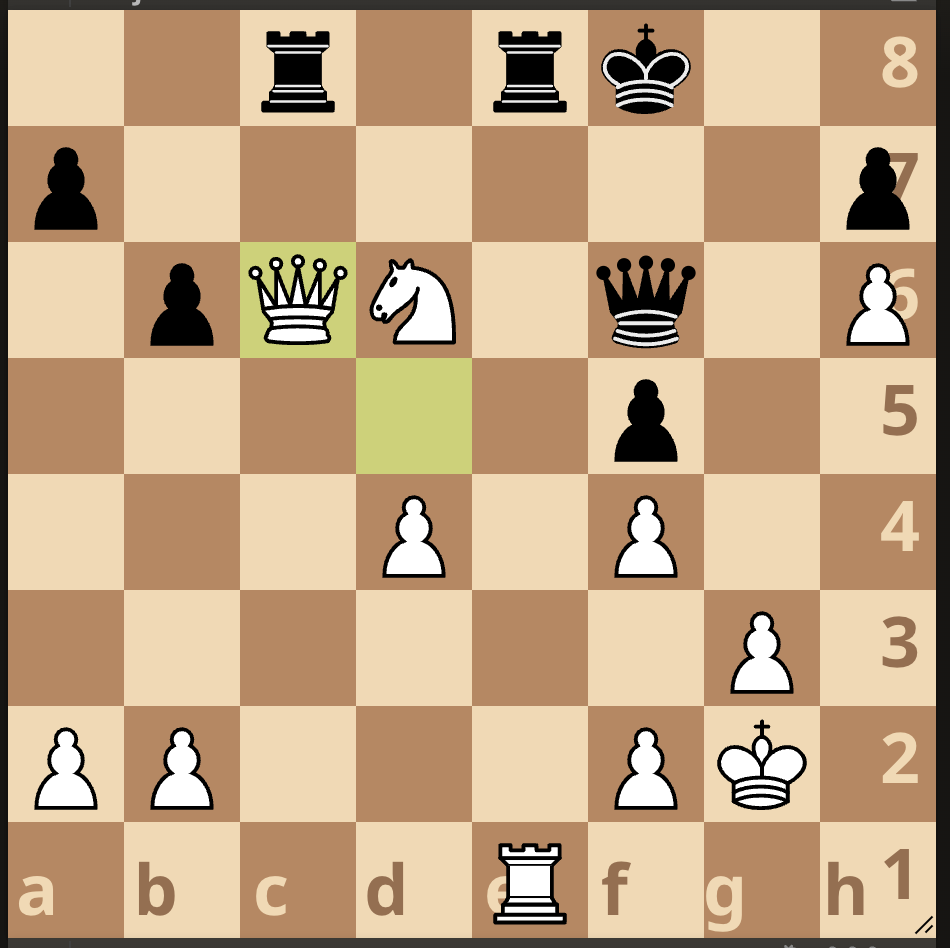

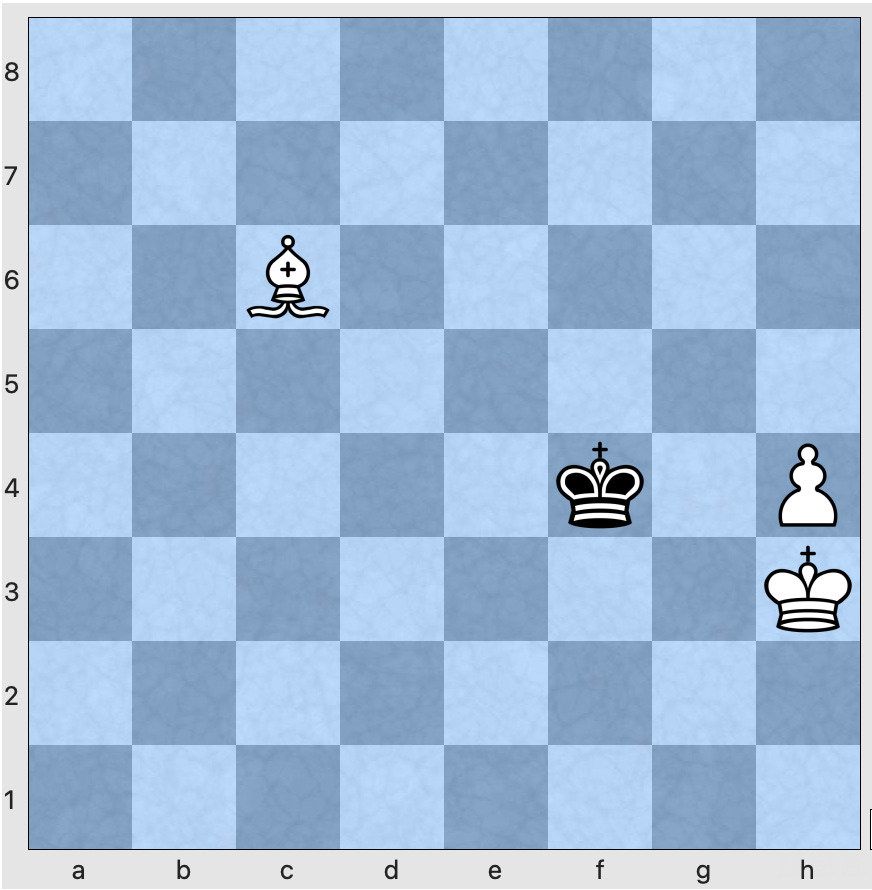
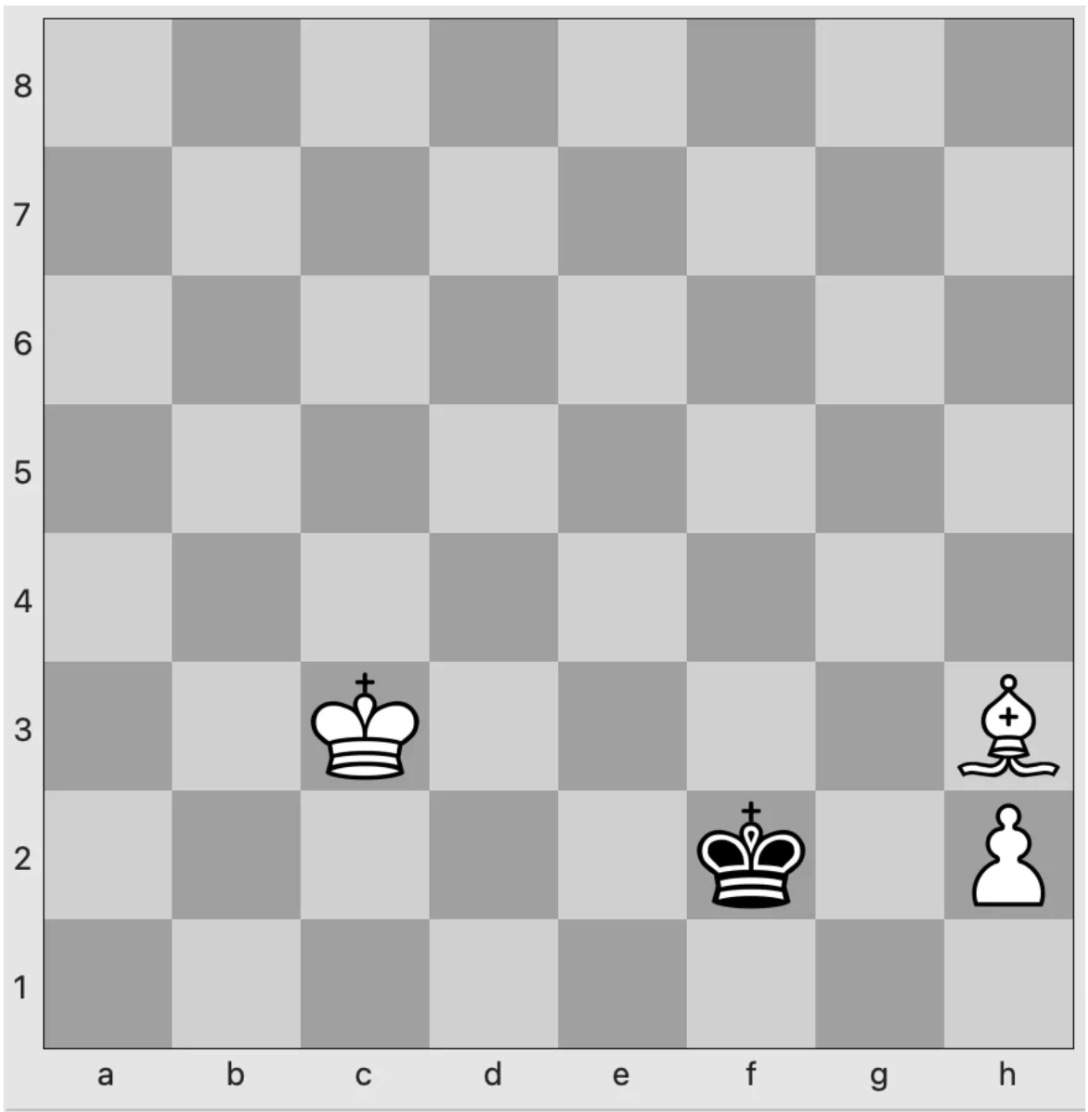

You list "In This Issue" but couldn't those be clickable links?